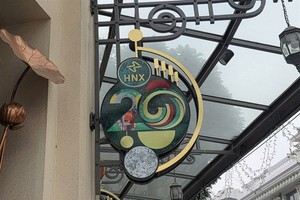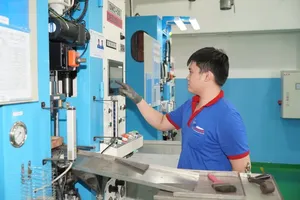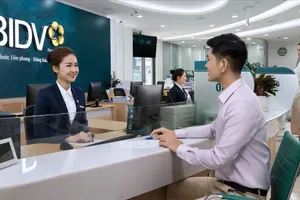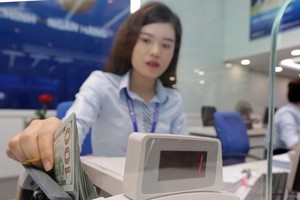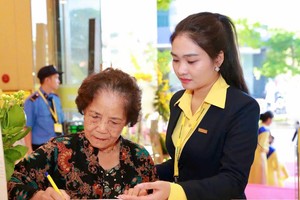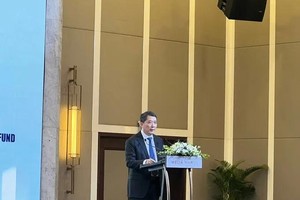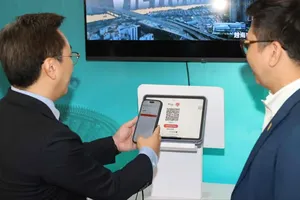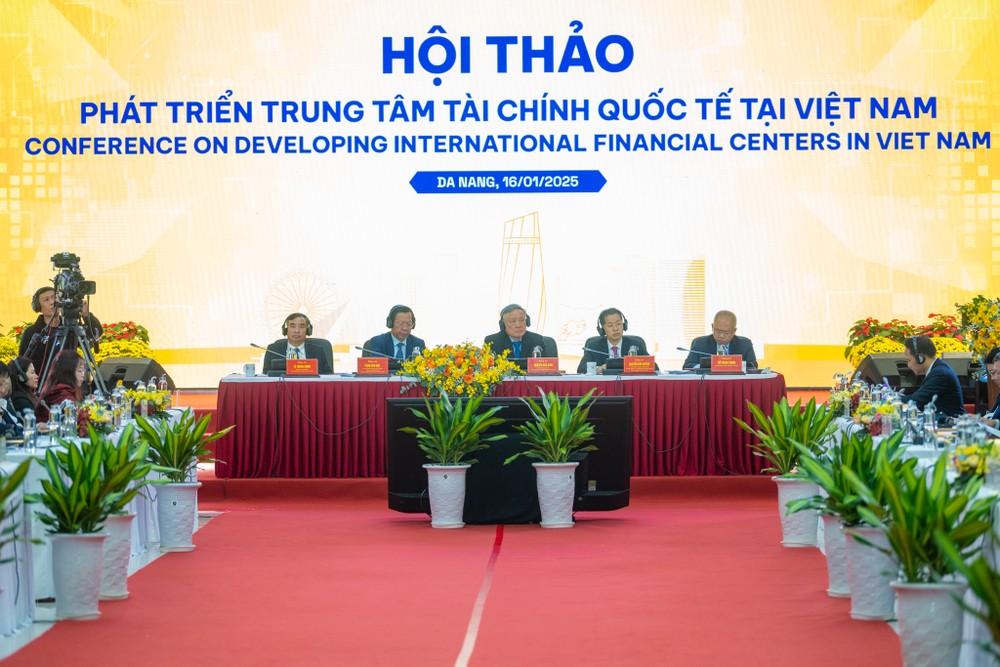
The conference was co-organized by the Da Nang City People’s Committee and the Ministry of Planning and Investment on January 16.
At the conference, Chairman Phan Van Mai of the HCMC People's Committee emphasized that the development of regional and international financial centers in HCMC and Da Nang is grounded in the nation’s stable political environment, rapid economic growth, high level of openness, and strong global economic integration.
A key advantage is Vietnam's strategic location, offering a time zone distinct from the world's 21 largest financial centers, coupled with its geopolitical significance in one of the world's most dynamic and innovative regions.
Capitalizing on the nation’s foundational strengths, HCMC and Da Nang will continue to harness their unique local advantages, fostering collaboration to achieve the shared goal of building and advancing international financial centers.
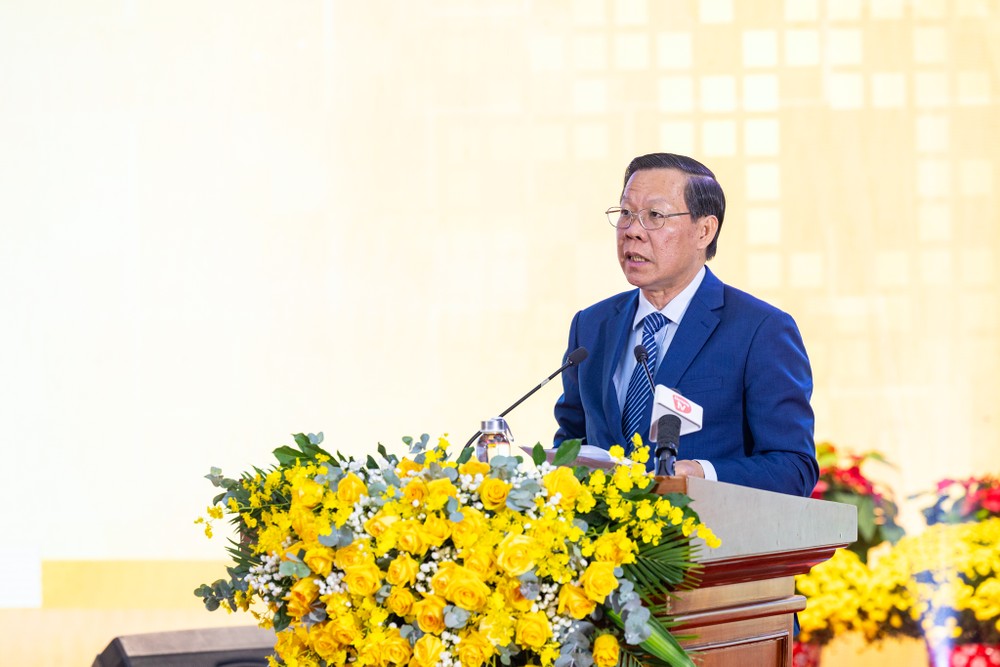
HCMC was first included in the Global Financial Centers Index (GFCI) in 2022. The latest GFCI report (September 2024) highlighted HCMC as one of the most improved financial centers in the Asia-Pacific region.
Ho Chi Minh City is Vietnam’s digital financial services hub, leading the country in financial technology adoption. It hosts more than 50 percent of the nation’s fintech startups within its robust financial ecosystem. The city also benefits from a highly skilled and cost-competitive workforce, including top-tier programmers, which positions it to develop unique products for the Vietnam International Financial Center in Ho Chi Minh City.
The GFCI report identifies Ho Chi Minh City as an emerging financial center with strong growth potential. However, it notes that the city currently lacks the connectivity, diversity, and specialization found in leading global financial hubs.
HCMC plans to prioritize investments in financial center infrastructure by developing strategies to mobilize resources from both the State budget and private sector to improve infrastructure to support financial activities and implement workforce development plans tailored to the needs of the financial center.
The goal of building, strengthening, and leveraging competitive advantages is to align Vietnam’s financial centers with international standards and practices, thereby advancing the effective development of the country’s financial market and contributing to its economic growth.
Looking ahead, Vietnam’s financial centers aspire to play a pivotal role in Southeast Asia, capitalizing on international capital flows, connecting regional financial markets, and establishing themselves as internationally recognized, comprehensive financial hubs.
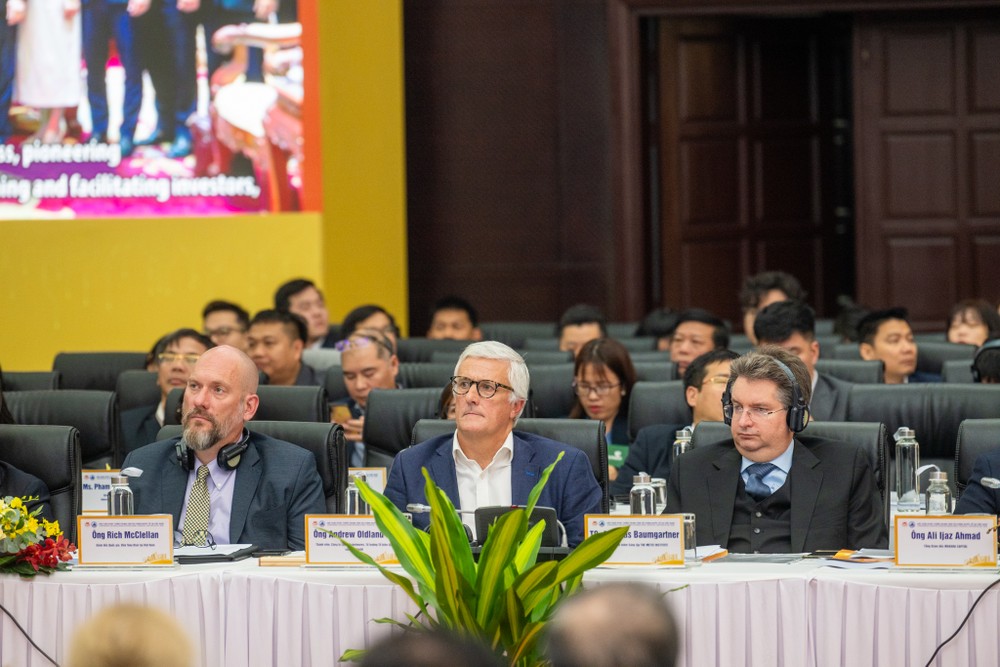
Mr. Ho Ky Minh, Vice Chairman of Da Nang's People’s Committee, stated that investors from the US, Singapore, the Middle East, and Switzerland are interested in developing Da Nang Financial Center, focusing on innovation, green finance, fintech, and trade finance. This will leverage Da Nang’s strategic position in the Indian Ocean-Pacific corridor and its urban infrastructure to create a unique blend of traditional financial services and advanced technologies, enhancing cooperation and trade within global value chains.
This direction aligns with contemporary development needs and new opportunities from the establishment of the National Innovation Center and the Da Nang Free Trade Zone. By capitalizing on the unique advantages of Da Nang and Vietnam as a whole, it paves the way for Da Nang to emerge as a gateway for investment, trade, finance, and technology on both national and regional scales.
In his opening speech, Mr. Le Trung Chinh, Chairman of Da Nang City People’s Committee, highlighted that on November 15, 2024, the Politburo issued Conclusion No. 47-TB/TW on building a regional and international financial center in Vietnam. It represents a major challenge and a new field, but is a breakthrough strategy for economic and financial development, enhancing Vietnam's global role and influence.
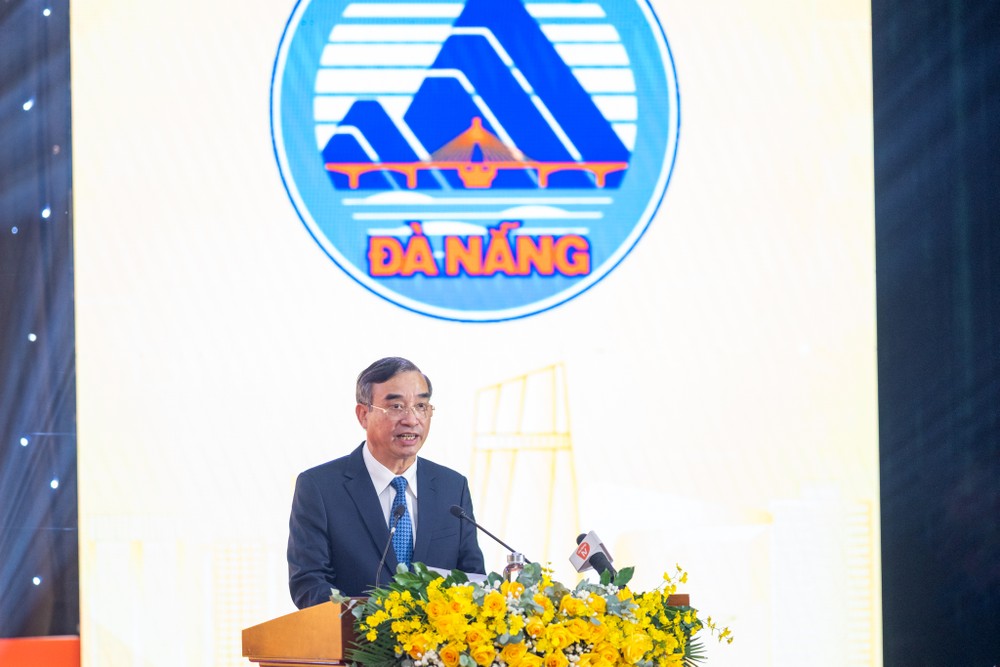
To ensure effective implementation of the Politburo’s directives, the Government and Prime Minister issued Resolution No. 259/NQ-CP and Decision No. 1718/QD-TTg on December 31, 2024, outlining the action plan and establishing a steering committee for the project.
The seminar will clarify the potential and favorable conditions for establishing an international financial center in Vietnam and provide recommendations for its development.
Based on international experience with successful financial centers, Dr. Andreas Baumgartner EMBS from Metis Institute identified five core factors for establishing a financial hub: clear positioning and a specific value proposition, a strong and transparent legal and governance environment, attractive physical infrastructure, a dynamic community, and persistence and excellence in execution.
The most important factor is clear positioning and a specific value proposition. Successful international financial centers offer unique value to the market. No center succeeds merely by labeling itself "an international financial center." For example, Dubai's financial center initially positioned itself as a regional hub before growing into a global player.
Dr. Andreas Baumgartner EMBS emphasized that when Vietnam establishes two international financial centers in Da Nang and Ho Chi Minh City, it is crucial to clearly differentiate them. Each center should have a distinct value proposition to avoid confusion and competition, ensuring they can fully leverage their unique potential and meet the different needs of the market.
Mr. Andy Khoo from Terne Holdings emphasized that governance is the foundation of any successful financial center. For Da Nang International Financial Center, this means ensuring regulatory independence, transparency, and a forward-looking policy approach.
By establishing an autonomous regulatory body modeled after Dubai, Da Nang’s financial center can build global investor trust, which is essential for competing internationally. Using English as the primary operating language aligns with international standards and ensures global accessibility.
Mr. Andy Khoo also suggested creating a specialized arbitration framework with international experts to ensure legal clarity and resolve disputes fairly. A tiered tax system, he added, could make Da Nang Financial Center competitive while adhering to global standards, attracting investment without compromising financial stability.
